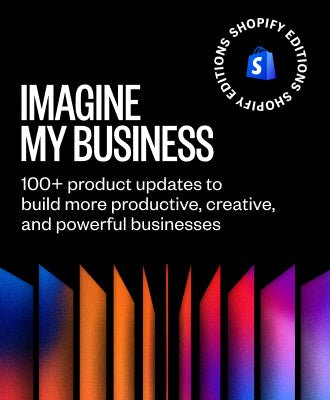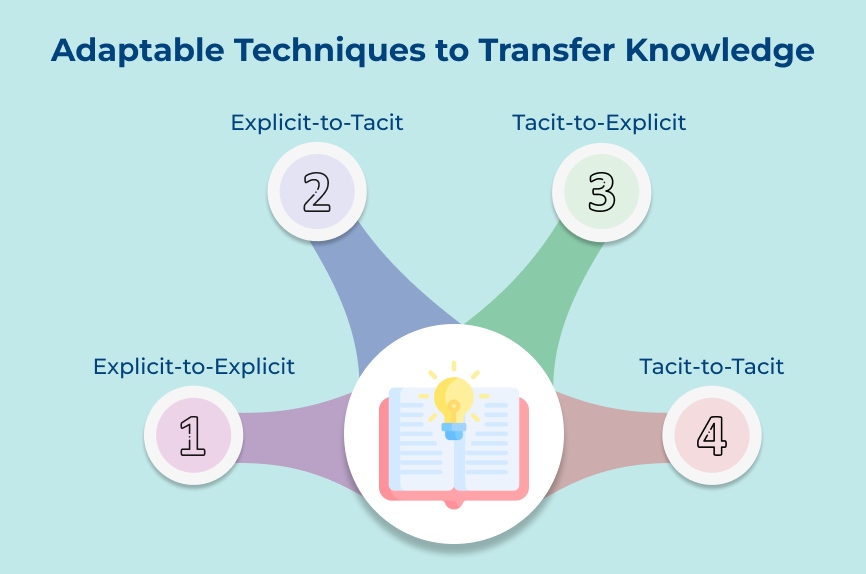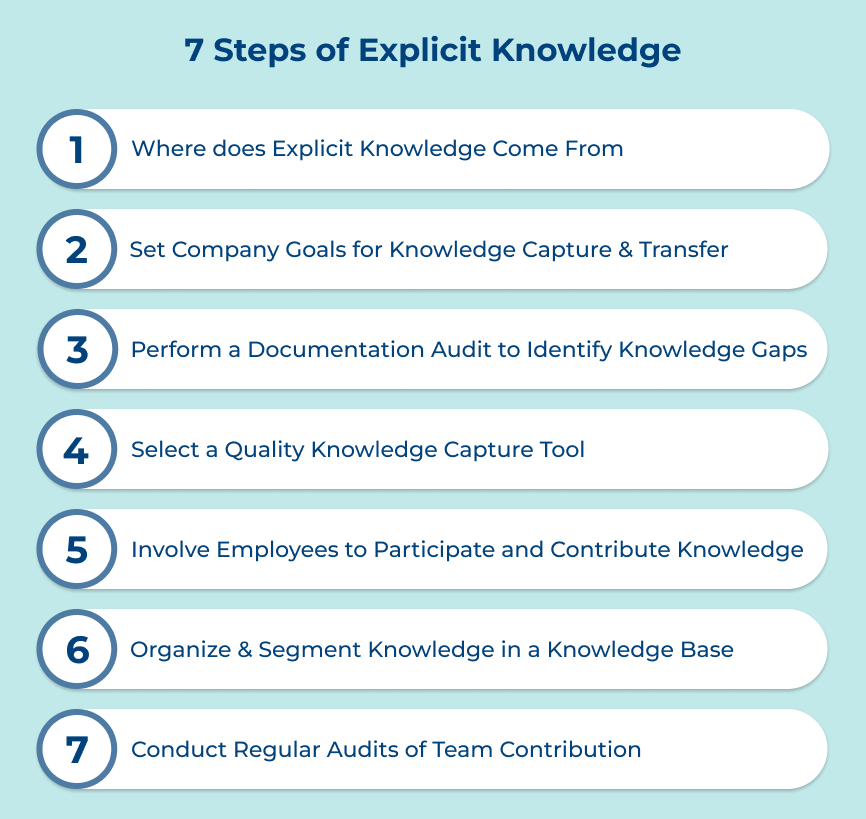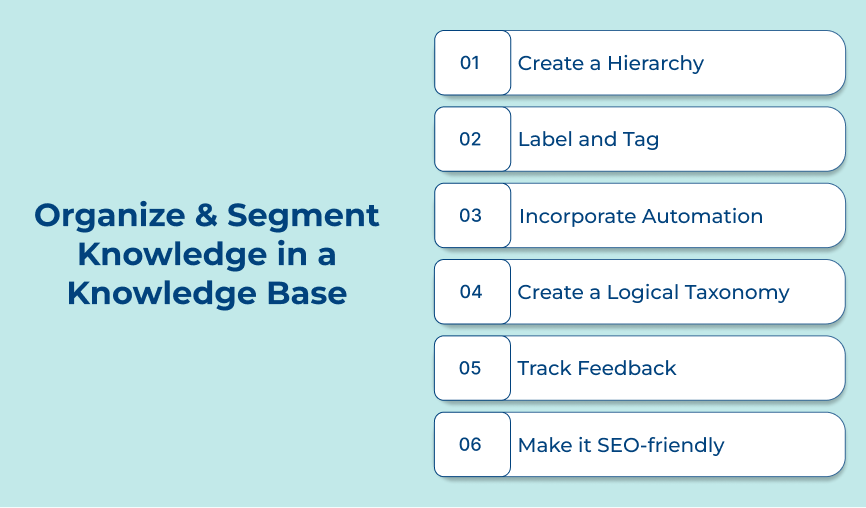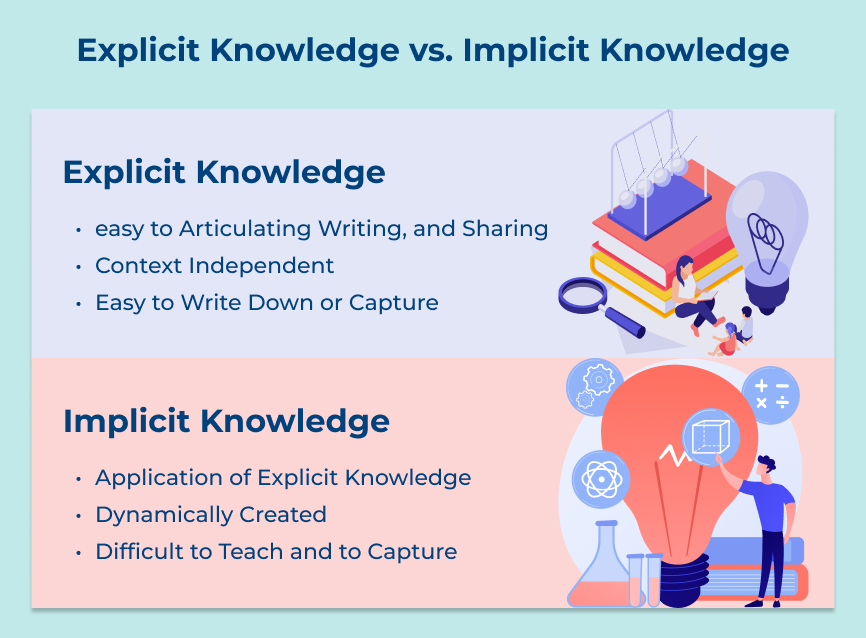1. Accessibility
Explicit knowledge is easier to access and retrieve as it is readily available in written documents, databases or other forms of media. It can be easily shared and transferred among individuals or organizations.
Implicit knowledge is not readily accessible or explicit. It is deeply ingrained in an individual’s subconscious and is expressed through their actions. It is often difficult to articulate or transfer to others.
2. Nature
Explicit knowledge is typically information-based, factual and objective. It can be taught and learned through formal education or training programs. It is usually precise, measurable and easily codified.
Implicit knowledge is subjective and experiential. It is context-specific, often related to skills, intuition and judgment. Implicit knowledge is gained through practice, observation and hands-on experience.
3. Transferability
Explicit knowledge is easily transferable from one person or organization to another. It can be communicated through writing, presentations or other forms of explicit communication.
Implicit knowledge is not easily transferable as it relies heavily on personal experiences and individual interpretations. It can be challenging to convey through explicit channels and often requires direct observation or hands-on experience to be understood.
4. Importance
Explicit knowledge plays a crucial role in formal education, research and specific fields that require factual information and measurable data. It is widely used in academia, business and other professional settings.
Implicit knowledge is vital in fields that require practical expertise such as sports, art or complex problem-solving tasks. It often drives decision-making, creativity and innovation that cannot be solely based on explicit knowledge.
5. Learnability
Explicit knowledge can be easily acquired through formal education, training or self-study. It is the knowledge that can be accessed through books, lectures or online resources.
Implicit knowledge is primarily learned through experience, practice and observation. It is acquired gradually over time and is deeply embedded in an individual’s subconscious mind.
Top 4 Explicit Knowledge Examples
Here are a few examples of brands that have mastered the model of explicit knowledge and how they contribute to effective knowledge sharing.
1. McDonald’s
McDonald’s is a prime example of a brand that has effectively focused on explicit knowledge. They have meticulously documented their operational processes, from food preparation to customer service. It allows them to consistently deliver the same quality experience across their thousands of locations worldwide.
2. Coca-Cola
Coca-Cola is another brand that values an explicit knowledge strategy. They have a secret formula for their iconic beverage, which is closely guarded and documented. Although their formula is not fully disclosed to the public, it is a prime example of the model. The company has also carefully documented its manufacturing and distribution processes, ensuring that the unique quality of Coca-Cola products are maintained worldwide.
3. Google
Google heavily relies on knowledge to develop and improve its solutions. They have extensive documentation and internal resources that provide employees with detailed information about their various products, including search algorithms, advertising platforms and cloud services. Google’s explicit knowledge empowers its employees to understand and utilize the company’s technological infrastructure effectively.
4. Amazon
Amazon is known for its operational efficiency and customer-centric approach. It is largely due to their emphasis on explicit knowledge. The company has developed a wealth of knowledge related to order fulfillment, logistics and customer service. The knowledge is not only used internally but is also shared with third-party sellers through their Fulfillment by Amazon (FBA) program, enabling them to benefit from Amazon’s knowledge model.
Elevate your intellect with Explicit Knowledge
Elevating your intellect with an explicit knowledge strategy is crucial for personal growth and success. Actively seeking out knowledge and gaining expertise in specific areas enables businesses to unlock new opportunities. Whether it’s through formal education, online courses, or practical experience, continuously sharpening the mind will not only enhance your skills but also boost your confidence.
Remember to apply what you learn in real-life scenarios and never stop exploring different subjects. A desire for knowledge and a thirst for learning will allow you to elevate your intellect and achieve great things in both your personal and professional life. Start the journey towards explicit knowledge today and watch yourself flourish.





